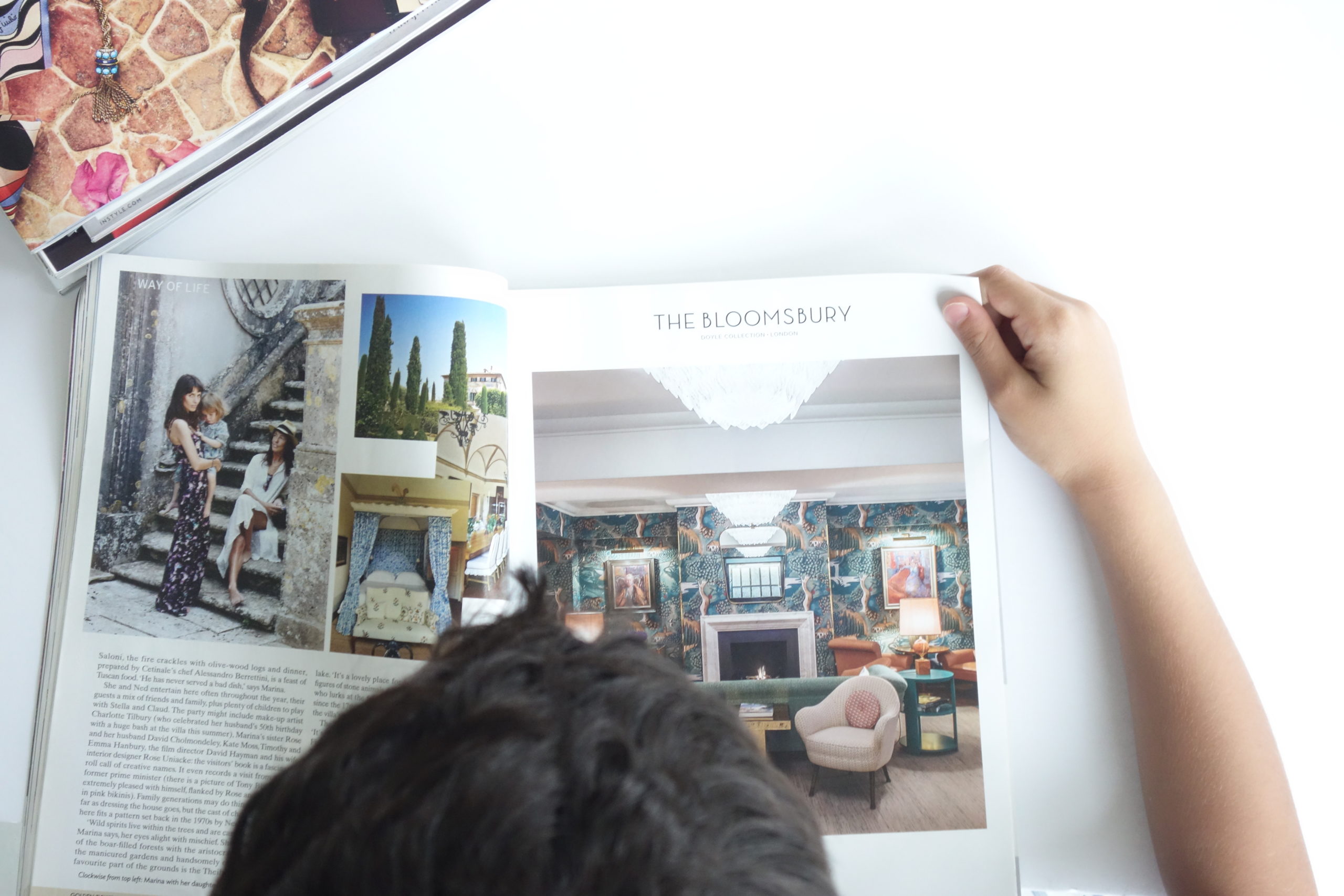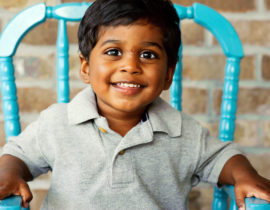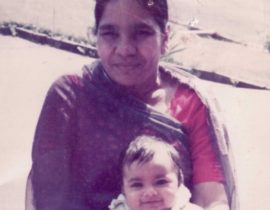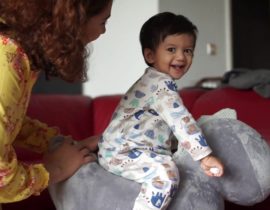HOW TO HOMESCHOOL YOUR KIDS
Homeschooling took a lot of unlearning at first to get it right for Canadian Sunit Kaur. The Mom of twin boys explains how parents have to find a way of teaching that works for their family and digs into some of the cultural expectations surrounding education that she was up against.

Q & A WITH HOMESCHOOLING MOM SUNIT KAUR
What do you love about homeschooling: It’s much slower and more relaxed. No rushing to get out of the house every morning or waking up tired kids, dragging their feet. Not having to pack lunches or deal with the hustle and bustle that comes with all the school functions. But mostly I love teaching in a way that works for us as a family and suits my kids the way they learn best. The flexibility of what to teach, how to teach and when to teach it. Being able to really think about what I wish I had learned more and less of. Customizing a program that serves my kids’ future better instead of the one-size-fits-all curriculum I experienced. We also connect with other homeschool families. Kids thrive in a non-structured environment with children and adults of all ages instead of one teacher and kids all the same age.
What’s the downside of being a homeschool parent? Spending so much time with your kids can obviously be exhausting. There’s more effort getting them out to meet with other homeschool families as opposed to just sending them to school every day, knowing they’ll see friends there. When you are the teacher and the mom there is a difference in that teacher/student relationship. I’m constantly thinking about how to fulfill certain curriculum requirements or wondering if I’m doing a good enough job. It can take a toll if you’re too hard on yourself or unable to be flexible.
Should parents consider homeschooling? I think we are in a time of life where we are beginning to realize that all is not as it seems. Many of us are questioning how well our own schooling really served us and thinking of what we wish we would have learned. We are wondering if the system we went through really prepared us for life. We question the meaning of a piece of paper as opposed to real life experience. Is a one-size-fits-all system creating repeaters instead of critical thinkers really the best thing? If you can step outside of your own thinking, opening your mind to the possibility that there is a better way, then homeschooling can be a beautiful thing. It strengthens your bond as a family. The bonus is you can do anything at any time, turning it into a homeschool lesson instead of having to wait for holidays or weekends to enjoy life and vacations. You open up a world of possibility for your kids. Imagine having a child who is allowed to pursue their interests, curating skills that could serve them later in life. Kids get a chance to work towards perfecting what they love to do.
How do you prepare homeschooling lessons? I really don’t prepare lessons. This is one of the biggest myths of homeschool. Parents need to deprogram themselves before beginning to school their kids. Of course there are parents who teach this way, but I personally don’t. I understand what our provincial curriculum requires them to learn and I have a few workbooks keeping us on track, but we don’t do “lessons.” People envision homeschool being just like regular school where the kids sit at a desk and you teach several hours a day. But really most days we are just living life. If we do any kind of lesson or workbook, it may be a half hour max. The most important thing I do is be mindful about how they will learn what they need to learn in a way that is relevant and interesting. For example if we are learning math fractions or science like solids and liquids or even reading, I consider teaching those concepts while baking muffins.
So what Topics do you Focus on with your kids? The basics that are required by the provincial curriculum like language, math, science and social studies, but we also do health, body awareness and autonomy, mindfulness and a big focus on really identifying what they love to do and figuring out how to do more of that. Less memorization and more asking questions and learning all the different ways to get to the answers. Teaching them how to think as opposed to what to think.
What’s lacking in the public education system? Individualization. There’s too much focus on one way of thinking and not enough emphasis on asking questions and being a critical thinker. Not enough focus on things that really matter and serve kids in real life like how to make a real difference in the world, how to do your taxes and how to really apply what you learn.
What would you say to those who feel children need to be in school? That’s a reflection of how indoctrinated we are to think that’s the only way. The science shows that children learn best through play, through doing, through applying what they’re learning to things they love. Humans were never built to sit at a desk all day and memorize stuff. The traditional school system didn’t have anything to do with wanting the best for children. School was more of a place to send kids so parents could work. Then raising groups of adults who could follow orders and repeat what they were taught. When you dismantle the system, you realise that a typical school environment is the opposite of what kids need. Not all schools of course, but a majority are not at all designed to help our kids thrive.
Why do you think there’s a growing interest in homeschooling? More and more people have come out of the system and had their own a-ha moments of where it fell short for them. With the government’s ever increasing control over everything and even biases of teachers trickling into lessons, more and more parents are wanting to take their power back. Our kids often spend more time at school than they do with us. I think parents are recognizing this needs to change and we need to be able to raise our children with values that are important to us. Every child is different and every family is different and the system treats everyone the same.
How is your view of education different from your parents? I grew up in a very traditional East Indian home. You go to school, you get good grades and then you go to university no matter what. You try to become a doctor or a lawyer. I had this belief myself until just a few years ago. I left a very lucrative career at the age of 40 to pursue my passions and interests. How much more successful could I have been if I was encouraged to follow my strengths and passions? I don’t want my kids to live that way. These days, I don’t even believe university is a must. It’s shocking to hear myself say that since both my husband and I have high levels of education. This mindset is so deeply ingrained in us it takes a lot of work to undo. Most of our family and friends still can’t wrap their heads around homeschool or not attending university. I’m sure the grandparents will have a hard time understanding if our kids don’t pursue post-secondary education. It takes a lot of courage and strength to pull away from how your parents did things.
How can other parents dive into homeschooling? The number one piece of advice I give to parents considering homeschooling is to “unschool” yourself first and reprogram your family so that you aren’t trying to mimic regular school at home. Spend the first year reading books on the topic and being really relaxed with your kids. Find your groove and rhythm as a family, as a teacher/student relationship. If the kids are under the age of about 12 or 13, there really should not be a ton of pressure on curriculum or traditional school. They will not fall behind. Take your time to find your own unique way of homeschooling.




